The video game industry today is estimated worth a colossal £120bn. To put that into perspective, movies – once considered top dogs of the mega-bucks media world – earned around £33bn at the global box office, while the music industry pulled in £15bn.

With the success of the games industry, is there anything musicians can learn and adapt to their own industry? Of course there is!
We will take a comprehensive look at the games industry and how it involved music. Following this, we will discuss how artists can learn from the games industry and where to take inspiration from.
What Musicians Can Learn From The Video Game Industry
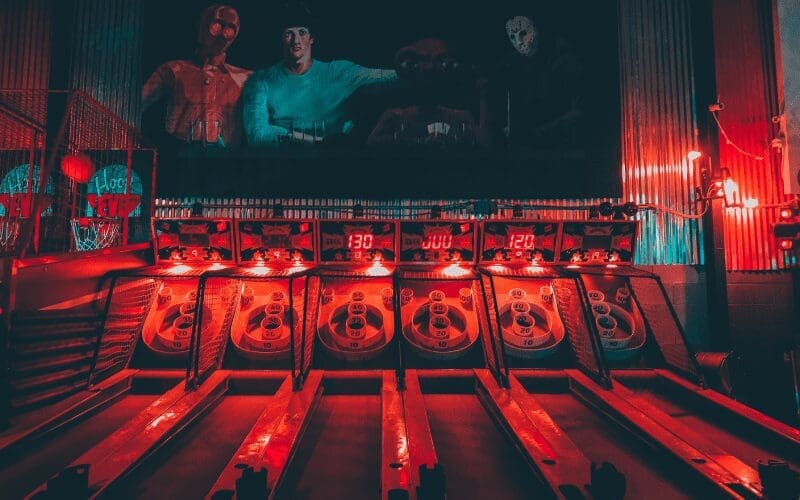
You can forget your James Bond’s and your Harry Potter’s. The highest-grossing media franchise in the world is Pokémon. And Rockstar’s epic open-world carnage-sim Grand Theft Auto V (United States) has, since its release in 2011, grossed more than any film ever made. That includes Star Wars (Electronic Arts), which could only muster up a pitiful $3bn against GTA’s $6bn.
We’re talking figures even life-long superstars like Bowie and The Beatles can’t touch.
In short, the gaming industry has exploded in ways no other media has. All of which begs the question: what can the music industry learn from this sector?
Let’s take a look at how the video-based game industry rose to these heady heights, the mechanisms that they’re using to engage and entice players, and how musicians can start getting in on the action.
How Video Games Grew Up

When Nolan Bushnell created Pong in 1972 – that small white circle bouncing between two thin white lines – the response was immediate. People were baffled: how did the TV set understand their movement? They were intrigued. And, most of all, they were ready to play video games. The Pong arcade machines quickly started to outstrip their competitors, with Bushnell estimating that they brought in $30-$40k every day.
Pong had landed on what Bushnell called ‘a perfect storm’, a set of attributes that made Pong irresistible. And, although the technology may have moved on, these things sowed the seeds for a range of tactics that have allowed the industry to thrive.
Novelty

Back in 1972, Pong was the next big thing. Today, games developers grapple to find new ways for people to play and to create new video game consoles that revolutionise the industry all over again.
While the Nintendo Switch may not have the graphic or processing oomph of its competitor consoles, it has held its price in a way that Sony and Microsoft can’t manage by offering players something different.
This also means keeping the content fresh. When games developers started introducing season passes into their titles, it allowed gamers to invest in new content for their favourite games, unlocking additional levels, maps and character designs.
The key for developers has been to create new content so that players will spend smaller amounts regularly. In addition to microtransactions and loot-boxes, plenty of games have introduced in-game currencies that can be earned just by playing the game. Although players are always free to spend more to top up their stash.
Competition
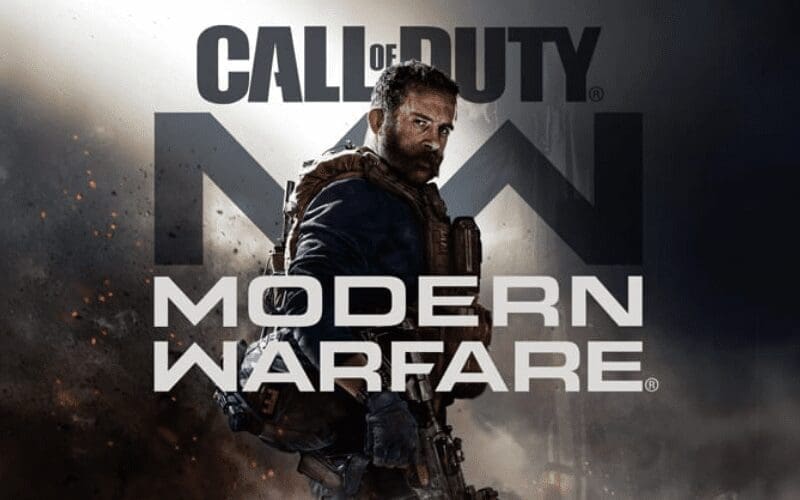
Games are, by their very nature, competitive beasts. Popular multiplayer titles like Call of Duty from Activision Blizzard, see you battle to be crowned the victor. However, even single-player games spark a player’s competitive spirit by encouraging you to constantly better your previous performance.
Then there are the bragging rights that come with beating your friends’ scores or being the only player in the match with a rare skin or item. Competition keeps players logging in time and again, as there is always the desire to go one better.
Esports take this to a whole new extreme, taking gaming’s competitive element and introducing an audience of spectators. With esports game revenue expected to exceed £1bn in 2020, it has almost become an industry in its own right.
It has also launched the careers of teams and players. Competitive gamers who now have their own legions of fans and can rake in six-figure salaries. And, just like with more traditional sports, there are ad deals to be done and money to be made from exclusive streaming rights.
The Video Game Industry Mass Appeal
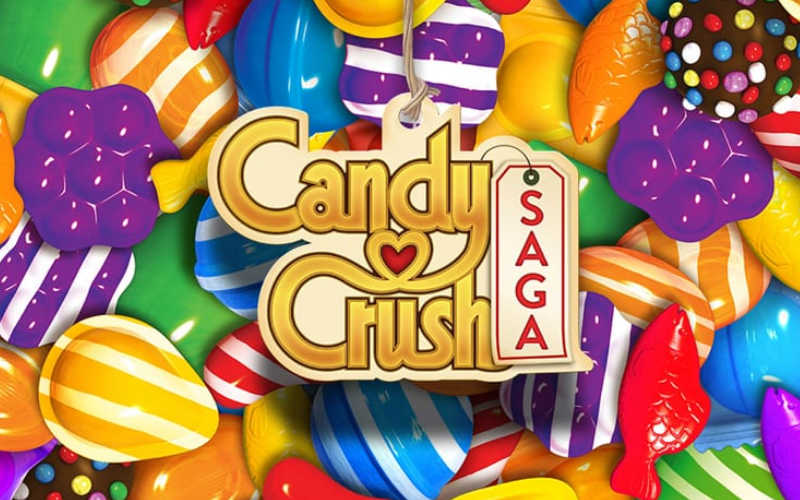
One of the factors credited with Pong’s success is the fact that, where gaming has often been considered a more male-orientated hobby, women were also eager to play. Gaming in the 70s, 80s and even 90s continued to be something of a niche hobby… And then smartphones happened.
Because smartphones opened up gaming to everyone; mums, dads, friends, even your Auntie Edna – suddenly we all have access to video games, from Candy Crush (United Kingdom produced) clones to battle royale behemoth Fortnite.
We can play when we want, and in many cases, pay how we want. This, in truth, is the real key to the success of video games as a media entity. It’s open to a bigger, broader audience than ever before.
Freemium Economies

Back in the day, every time somebody wanted that gaming fix they had to pump in a quarter. It was quite literally a pay to play economy. Over recent years game developers and producers have been busy studying how best to increase profits.
They’ve become incredibly adept at squeezing additional income from their products. Video game market revenue comes in many forms. Outright buying a game is an outlier, particularly in the mobile arena, and those keen to ape Fortnite’s free-to-play success.
These days, the freemium model has become increasingly popular. Predominantly pioneered by mobile games, this sees players promised a totally free game. And yes, if they don’t want to spend a penny on it, that’s ok.
Developers are banking on enough people throwing a few quid into the pot for goodies. Also, a very small handful of people will decide to spend excessive amounts in-game. Get players to commit to buying in – especially with well-structured discounts – and they’re much more likely to persevere and commit to paying on a more regular basis.
How Musicians Can Use The Video Game Industry To Their Advantage
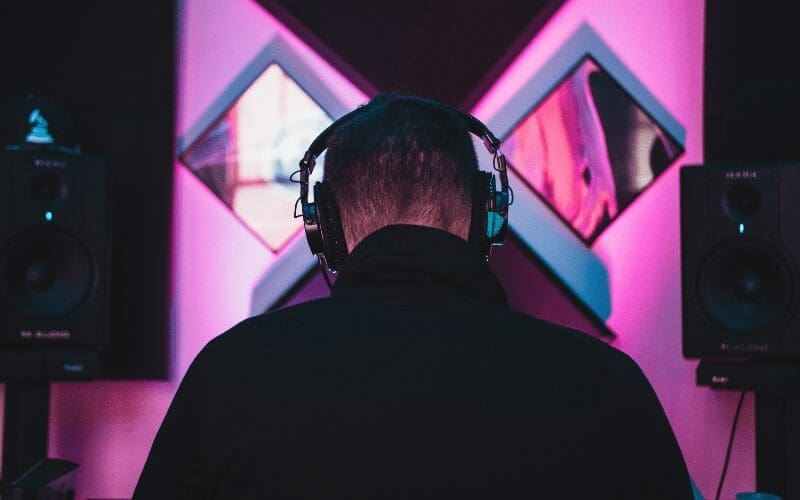
Musicians can start looking to these ‘micro-incentives’ as an opportunity to ‘gamify’ their own output.
Virtual currency and game mechanics have expanded from simply offering additional lives or bypassing wait times. Which allows users to fully customise their in-game wardrobes or purchase upgraded weapons. Whilst the cost of these purchases is often relatively low, it can soon build into significant sums and since the cost of creating the merch is relatively low, the profit is extremely lucrative.’
Freemium digital downloads also allow for a turning of the tables. Rather than demanding players cough up, some games instead include adverts – either bottom-of-the-screen banner ads, short video adverts. Finished a level? Watch a commercial to continue. Lost a life? Earn it back with an ad. Of course, players can always pay a one-off charge or recurring subscription to remove these…
All of these methods, however, rely on enticing – and, more importantly, retaining – an engaged player-base. This is where the elements that we’ve just looked at play their part. The online updates that give a game new life, the competitive tournaments that turn video games into a spectator sport.
Smash hits such as Overwatch, Battlefield V, and Mario Kart Tour have all provided excellent examples of this, combining. By providing these for free, the video games industry ensures it doesn’t split the player-base – which harms long-term engagement. This also allows developers to modify games and respond to player feedback on the fly, in some cases, creating a greater sense of community.
Bringing Music Into The Mix
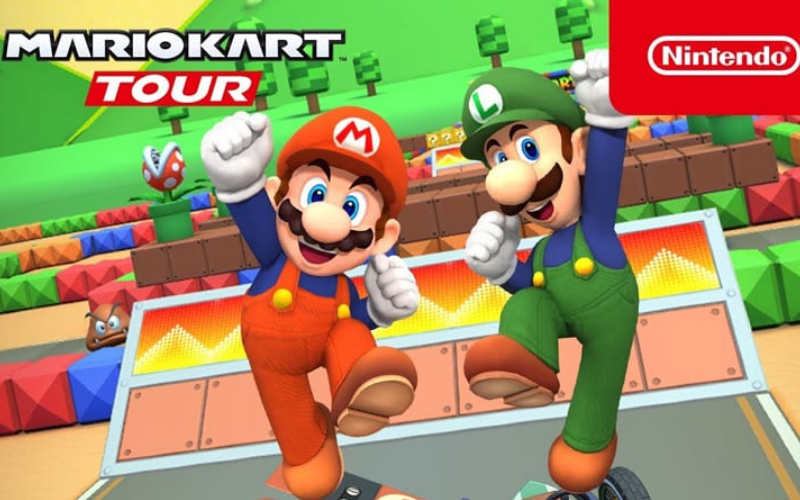
‘Doom is the only game,’ the old meme goes, ‘where you’re the one with boss music.’
And everyone can hum the Mario theme (South Korea).
Music helps create a video game’s identity. It wasn’t always that way. If you’re still imagining the blunt phut as you send the ball flying with your Pong paddle, you’re not alone – but at least those dreadful 8-bit tracks of the 80s led to today’s stunning music to stir every emotion. You’re lost in Los Santos, flipping through radio stations. Masami Ueda dredges up still-unforgotten dread in Resident Evil. No, you go through that door. Please. We’ll go to play Guitar Hero.
That’s showcase stuff. It includes the addition of Spotify to consoles, letting us stream music as we play.
Today’s Video Games
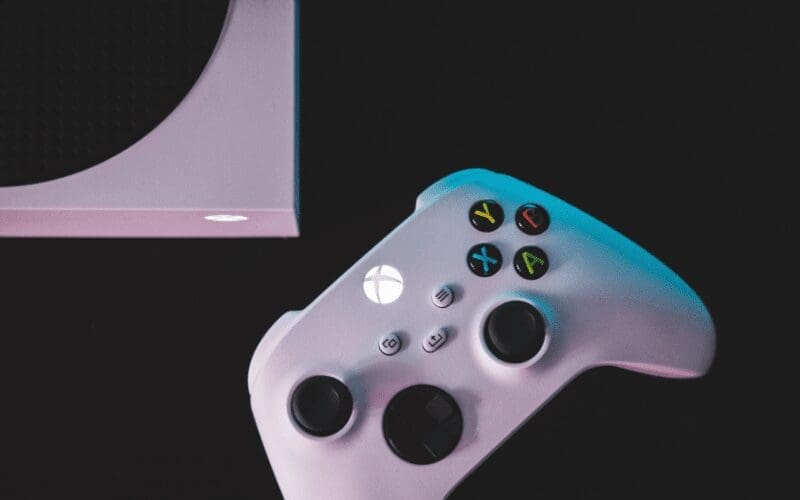
Today, video games are as much a stage, a musical platform. Some of the savviest artists have cottoned onto this. The Offspring played a gig inside World of Tanks back in September 2019, saying, “the game has never seen anything like this before, so we’re excited to be the first!”. It seemed an odd mix. Two months later, the band announces a new album in the works. Perhaps one of the most intriguing instances is that of True Damage and their appearance in League of Legends.
When Marshmello DJ’d at Fortnite’s first-ever in-game concert, almost 11 million people tuned in online. That’s about a hundred Wembley Stadiums-worth. Nearly 50 million more have watched it on YouTube – and just wait ‘til you add in the Twitch viewing figures. He also has a player skin available to purchase in-game.
Drake has appeared on Ninja’s Fortnite streams, as has footballer Neymar. Other artists such as Lil Yachty and Tekashi 6ix9ine have streamed Fortnite gameplay or leveraged the game to build a social media profile.’
This offers incredible potential for exposure and earning as artists struggle to get heard in the ruthless shuffle of overpopulated subscription services.
More than gigs, these are events and digital social gatherings. It’s what Second Life could’ve been (with, fair, more respawns and gunplay). Most listeners will spend no more than a tenner a month for ALL THE MUSIC IN THE WORLD. Video game players buck this trend: research shows gamers are more likely to stream music and go to live events.
For an already engaged and paying fanbase, music and video games represent perfect harmony. Hang out with friends, listen to live (streamed) music. BYOB. And don’t forget to wear those top-of-the-line headphones, for the purest clarity.
Making Money With Music In The Video Game Industry
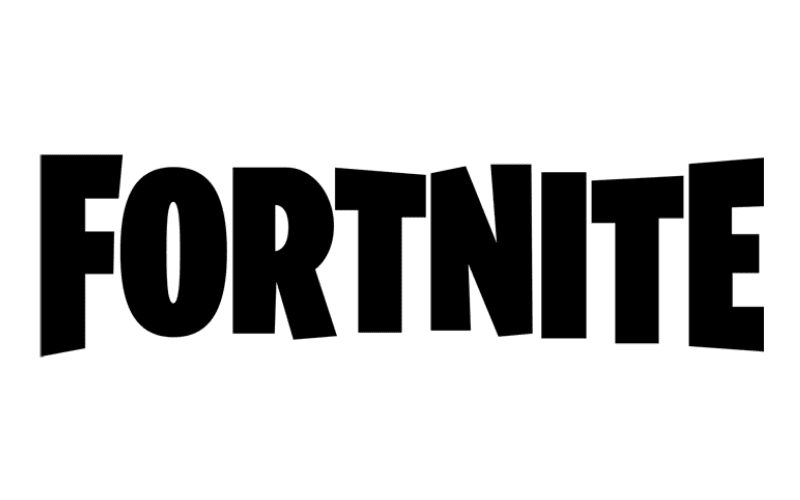
So, where’s the cross-over between video games and music? After all, once a track has been laid, it’s unlikely that many musicians will go back to it, tweak it, change it, edit it, adapt it, add horns, or whatever else – and all for free to listeners. Like films, most music exists in an ‘as is’ state, as opposed to a video game’s constant evolution.
Top musicians are already cracking the secret: limited edition content like themed cosmetic items. In other words, smaller monetisation tactics, low-priced enough to appeal to the biggest audience share, and exclusive enough to attract them.
Virtual Ticketing

Virtual ticketing is another form of money-making. These types of events don’t need to be strictly digital – although they absolutely could be. When fans bought tickets to the official Minecraft convention Minecon, it didn’t just ensure entry to the physical event; tickets also gave them access to special in-game clothing items. Little wonder that plenty of folks picked up tickets without even attending the show. It was all about paying to obtain that exclusive badge of honour.
Donations

Donations provide another revenue stream. Websites like Bandcamp already let listeners directly support musicians, as does the less music-orientated Patreon. This is a favoured route for smaller artists. Carving out a name for themselves, but in recent years video game streamers have shown that it can also be a lot more than that.
Streaming
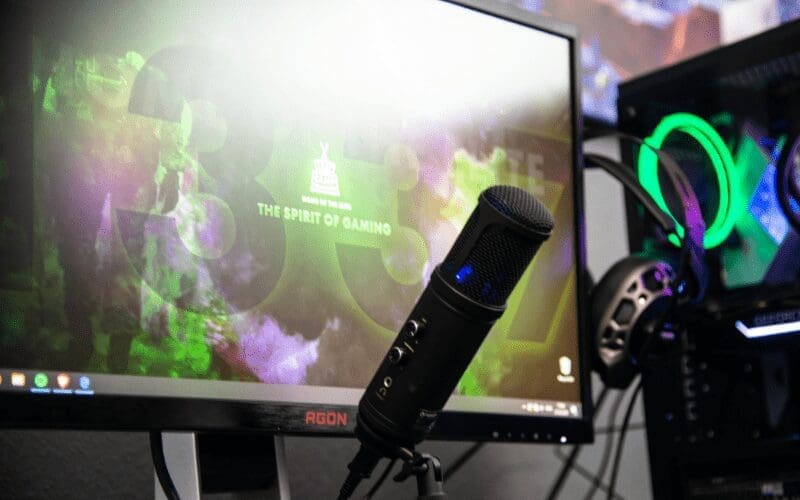
On any given night, at any given hour, thousands of players live stream their gaming adventures to a receptive community who willingly support them with donations ranging from a dollar to hundreds. With enough donations, streaming becomes easy to turn this into a viable living.
The very best (or, at least, most popular) streamers then typically partner with streaming services like Twitch and YouTube, making it even easier to make money from their live streams. It’s worth noting here, that far from being a video game-specific platform, the Amazon-owned Twitch is rapidly becoming popular for ‘chill and chat’ streams. Once again, that idea of community becomes central to the revenue stream – arguably, it’s more important than the actual games being played.
License Songs

Finally, for many musicians, the best way to make money from video games is to license songs. Essentially, this is an agreement between you and a producer that acknowledges their right to use your songs in their game for a fair price. This should also include back-end payments and royalties every time it’s used (not for actual gameplay but). Every time you’ve heard music in public – whether it’s on the radio, in a video game, at the cinema, or on your favourite Netflix show – someone’s licensed that use.
Which begs the question, how can you get your music licensed in a video game?
How To Get Your Music Licensed In A Video Game
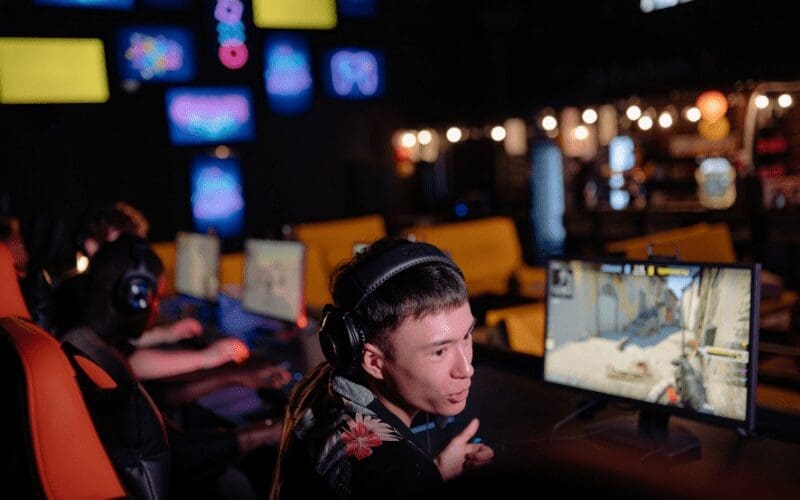
It involves attracting the attention of those in the gaming biz. Yet, despite the closeness of games and music, musicians and video game businesses can often feel miles apart. They move in different worlds. In these instances, experts with expertise across both industries become invaluable.
That’s precisely what Мusic Gateway does – providing an online games platform for musicians to upload material, which is then pitched to potential clients in London and LA. Independent artists are encouraged to sign up to get their music in front of music supervisors, broadcasters, TV production companies, advertising agents and games publishers worldwide.
It’s a good way to get noticed, build a portfolio, and start earning.
Focusing Your Music In Video Games
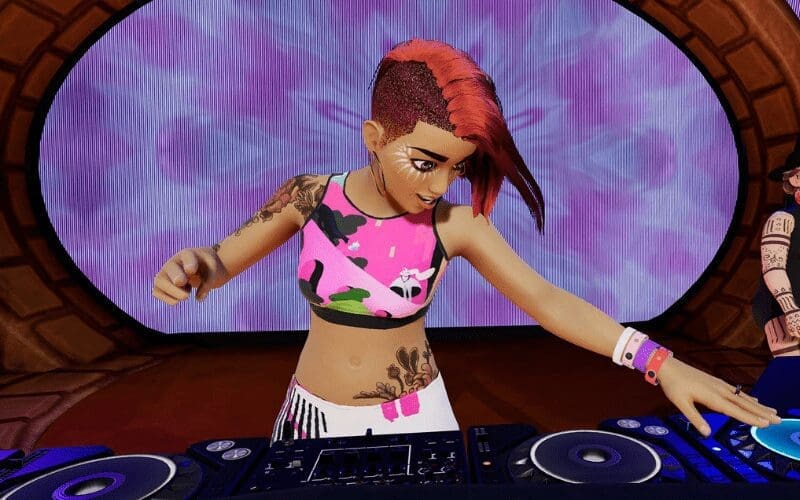
While getting your existing beats into a game is good, it can also be worth focusing time on specifically creating tracks for the video game industry.
Nick Dwyer, a host on Red Bull Radio, stating that “I think, 10 years ago especially, making music for a video game wasn’t seen as a cool thing – but the whole perception has changed now. It’s a very creative form. It’s seen as a new world to start diving into.”.
Central to this is understanding the different strands of the market. Making music for, say a mobile game is very different to music for consoles and PC, not least because a smartphone’s audio quality is lacking compared to a high-end rig. It’s also a matter of genres. There are few mobile games that need sweeping orchestral sounds.
Like the video games of the 80s and early 90s, the medium is geared towards simple, repetitive melodies that wash over the player (or, in some cases, send them into a trance-like state that keeps them gaming). Console gaming, conversely, offers far more opportunities for all kinds of music-makers.
Having said that, with 50% of the global games market under its belt, the market share for mobile gaming positively dwarfs its rivals. And it famously comprises of a very mixed audience.
Reports suggest that of the estimated 2222bn worldwide mobile gamers, 50% are female and 55% are over 55 years old. At the other end of the scale, the average demographic for a console player is a 36-year-old male.
This is an industry that’s to grow. Explode, even. And with the likes of Microsoft and Google investing in streaming games to pretty much any device with a screen and an internet connection, expect it to continue.
Learning Lessons From Video Games

For people in the music industry, there are two key things to be thinking about: firstly, how you can adapt the techniques used by game developers and publishers to promote your music and, secondly, how you can introduce your music into the gaming world.
Considered in the context of the music industry, some of gaming’s core components – novelty, competition, mass appeal, and the introduction of a ‘freemium’ economy – show us how important it is to continue finding new ways to engage with fans… and allowing fans new ways of engaging with their favourite artists.
It’s also clear just how important music is within the gaming world and the new doors that video games can open for musicians. By licensing your music to video games, or even creating tunes specifically with the gaming market in mind, musicians can expose themselves to a whole new market.
Final Thoughts
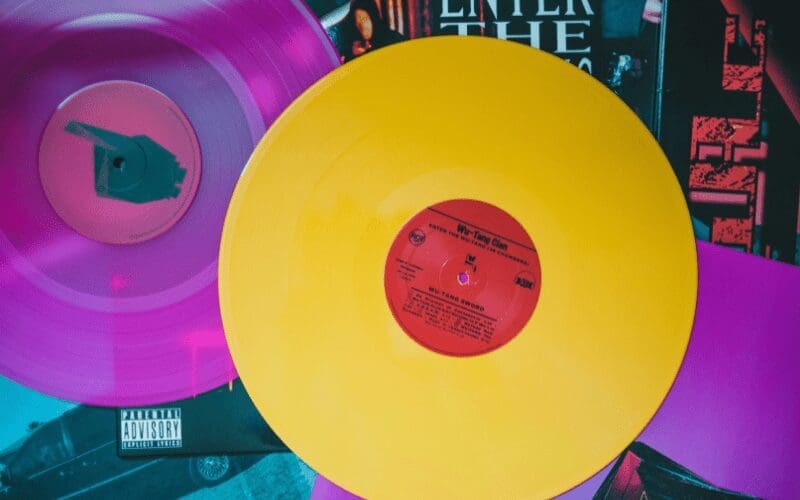
There is inspiration to be gained from many areas. Video games are certainly one of them! You can find useful information and tips by looking into other industries. By doing this, we can often discover means to market and promote ourselves that aren’t the typical methods.
If you’ve made it this far, why not read up on some of our other articles? The Role Of AI In Gaming, How To Start A YouTube Gaming Channel? and How To Make Music For Video Games? are all full of useful information!
Are You An Artist?
If you have songs that you want to share with the world – we want to help boost your career and get them noticed. Including marketing, promoting your music and improving your streaming presence!
Additionally, check out our Sync opportunities page to get your music in TV and Film. Try it out for free today by signing up.






